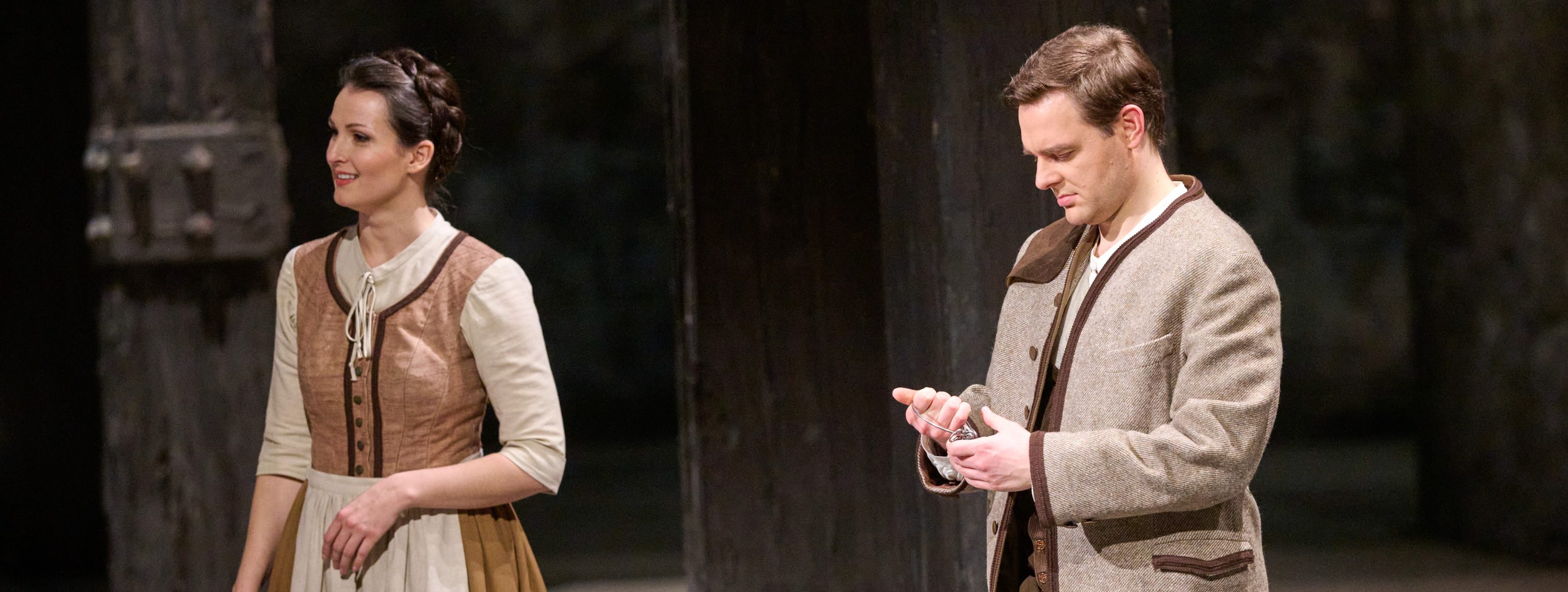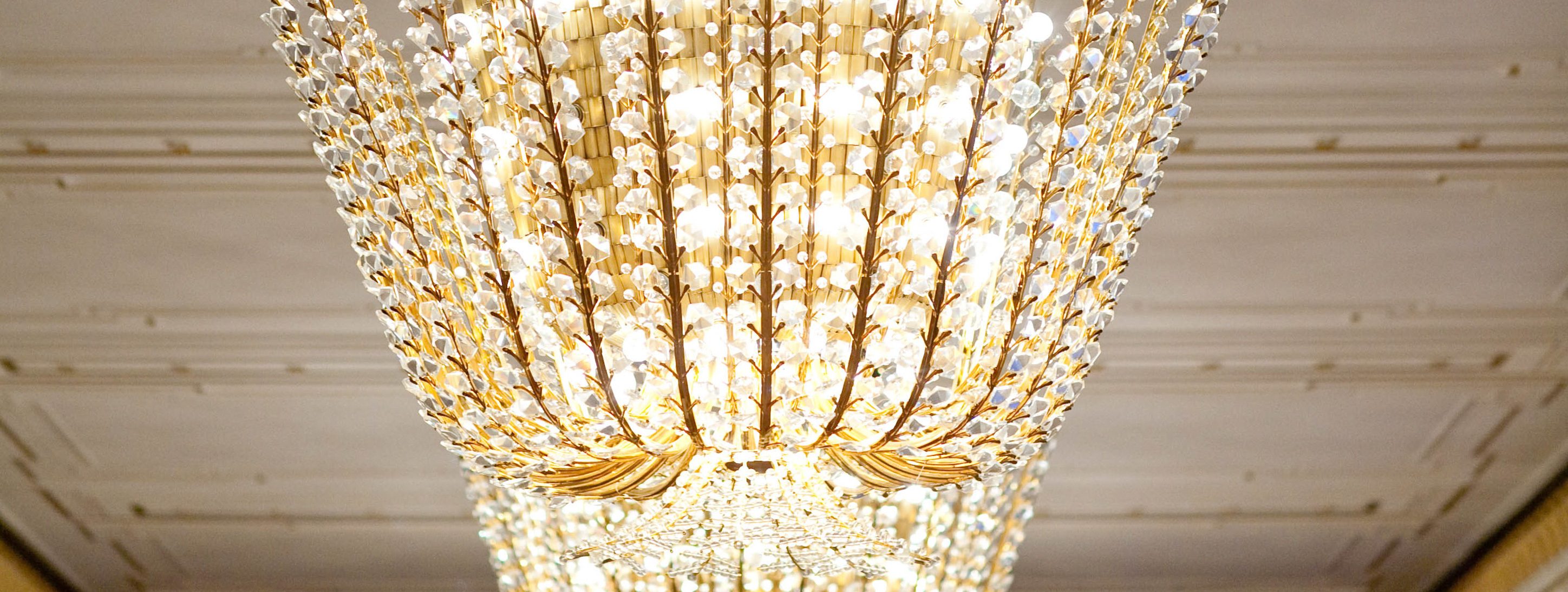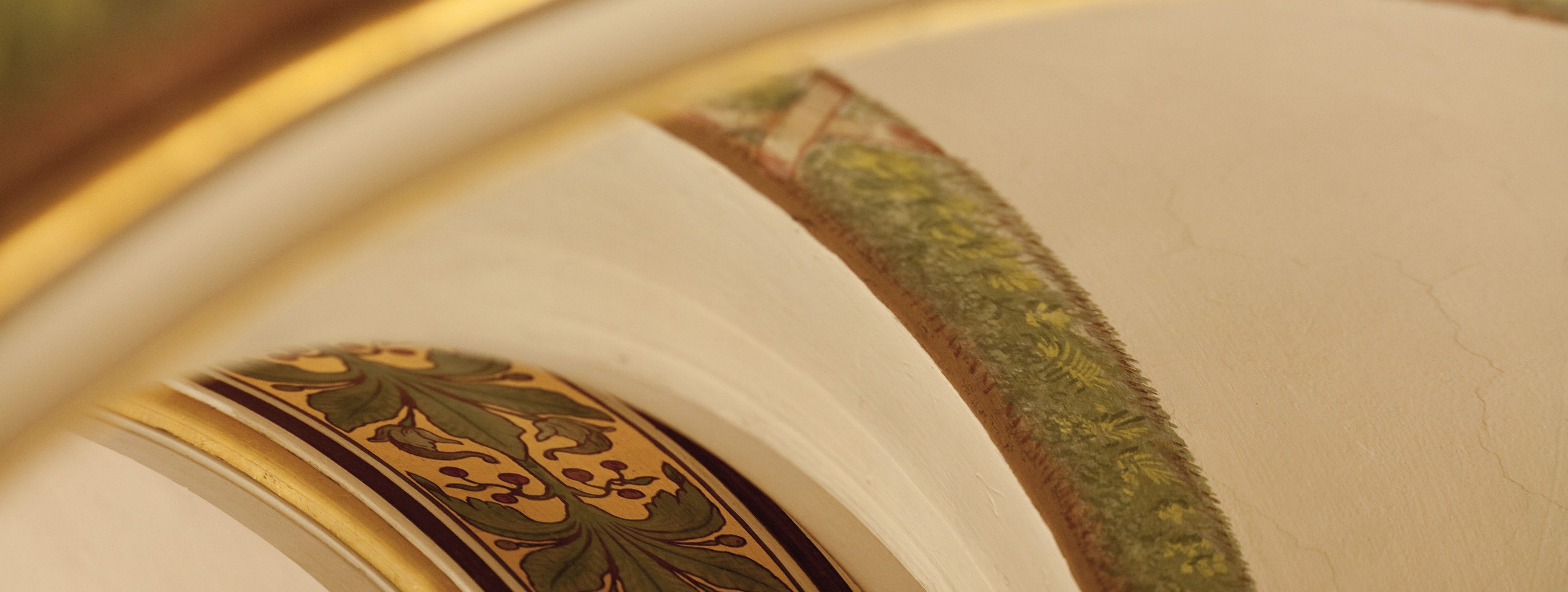
Short Summary
In a Spanish state prison, under the reign of terror of the brutal governor Don Pizarro, the innocent Don Florestan suffers.
His wife Leonore, disguised as Fidelio, works in the prison to be close to him. When a surprise inspection is announced by the minister Don Fernando, a confidant of Florestan, Pizarro plans to kill Florestan. But Fidelio bravely opposes him. At the decisive moment, the minister appears to end the oppression and free Florestan. A story of courage, love and triumph over tyranny.
Fidelio
Storyline
The governor of a Spanish state prison, Don Pizarro, runs a reign of terror in his institution. Innocent people become political victims of his brutal grip.

Don Florestan from Seville wants to clear up these arbitrary acts, but ends up in the hands of the violent man himself. He has been languishing in inhumane solitary confinement for over two years. His friends believe him to be dead, but his wife Leonore has not yet given up on the missing man. As she believes Florestan to be a prisoner, she hires herself out to the jailer Rocco as a closer. Dressed in men's clothes and under the name Fidelio, she performs hard labor, earns the trust of her superior and even wins the love of his daughter Marzelline.

Jaquino tries in vain to win Marzelline's affections. Since Fidelio has been in the house, she has not listened to his wooing.
Fidelio returns from errands in Seville. Rocco is again impressed by his new assistant's skill and sense of duty: Fidelio and Marzelline are soon to become a couple. Marzelline and Rocco dream of a comfortable future, Jaquino sees his prospects dwindling and Fidelio dreads the uncertainty.

Then Don Pizarro appears. From a confidential letter, he learns that the minister is on the trail of his abuse of office: a surprise visit is to convict him once and for all. Pizarro reacts promptly: a guard watches the main street, a trumpet signal is to announce the visit. Florestan, the most prominent victim, must be disposed of as quickly as possible. As Rocco refuses to commit murder, the governor will carry out the deed himself. The only thing the jailer has to do first is dig him a grave in the dungeon. Marzelline and Fidelio ask Rocco for a brief exit for the lighter prisoners.
Full of joy, the prisoners enjoy the warm spring sunshine. Fidelio is dismayed to learn of Rocco's new assignment and wants to share his hard labor in the dungeon: Will she help prepare her husband's grave? Outraged, Pizarro has noticed the prisoners' walk and will accept no justification. Only the urgent plan to murder Florestan prevents dire sanctions.

In the dungeon, the exhausted Florestan ponders his fate.
his situation seems hopeless to him; only the awareness of fulfilled duty comforts him. In an ecstatic vision, he feels transported to heavenly freedom by an angel with the features of Leonore. Rocco and Fidelio laboriously uncover a cistern. Florestan finally finds out who is in charge of this prison and wants to inform his wife in Seville. Fidelio now knows for certain who she is dealing with.

A little refreshment of bread and wine seems to be Florestan's last joy, for Pizarro is already approaching. But as he prepares to strike a fatal blow, Fidelio stands in front of the prisoner: "Kill his wife first!" She holds a pistol in front of the pursuing prisoner as the trumpet sounds. The arrival of the minister promises a turnaround: liberation for the oppressed, punishment for the oppressor. Pizarro hurries out of the dungeon, Rocco breaks away from his old master, Leonore and Florestan sink happily into each other's arms.
The people and the prisoners eagerly welcome the minister, Don Fernando. On behalf of the king, he announces a general amnesty and the end of political despotism. In Florestan, he recognizes his friend who had been declared dead. Leonore is allowed to loosen the chains of the long humiliated man, Pizarro is arrested.
Fidelio is still regarded as a mythical freedom opera, and "Fidelio also has a controversial libretto with many rough edges. For example, we don't know what kind of prisoners are being freed. Innocents? Political prisoners? Fidelio, intentionally or unintentionally, is also about being a follower; Rocco is a typical follower, a good guy, but one who has no way of defending himself. On the other side is Leonore, the woman who is the source of liberation. In this context, Günther Schneider-Siemssen and I came up with the idea of using the drawbridge as a symbol of freedom. And when it finally opens to reveal a sea of light - with people embracing each other - that's quite something. The touching moments are so essential that they inspired Beethoven to write his only opera. And Beethoven's rapture is transferred to the audience," says director Otto Schenk.
Beethoven's Fidelio is a work with a double texture: in some respects still strongly rooted in the world of the Singspiel, the opera also points far into the future in terms of its emotionality and affinity to music drama. We experience this for the first time relatively early on in the opera, in the very well-known, very fine quartet of Leonore, Rocco, Marzelline and Jaquino ("Mir ist so wunderbar"), in which time seems to stand still. Beethoven performs this quartet as a canon, so there is a link in the form - and yet each character stands alone and is preoccupied with their own thoughts. At this point, one of the challenges of the opera becomes clear: Beethoven conducts the vocal parts very instrumentally, using them as if they were musical instruments. Basically, purely in terms of the compositional setting, the section could also come from a string quartet. (Axel Kober)
Throughout his life, from his youth in Bonn until a few months before his death, Beethoven was intensely interested in music drama. There were plenty of libretti, 53 in fact. Beethoven dealt with all these subjects, but ultimately set none of them to music. What we are left with are only vague plans, a few passages from letters and a few sketches with scribbled motifs. Interestingly, no criteria are recognizable, neither in the selection nor in the rejection. Among others, the following were considered: an Alcina and an Armida, Odysseus' return and even Memnon's triad. From the summer of 1808, Titan considered setting Goethe's Faust. The Tragedy Part One to music. Despite or because of the personal meeting between the two in Teplitz and the subsequent rumor that the privy councillor was already working on the opera libretto, nothing came of it. (Robert Quitta).











